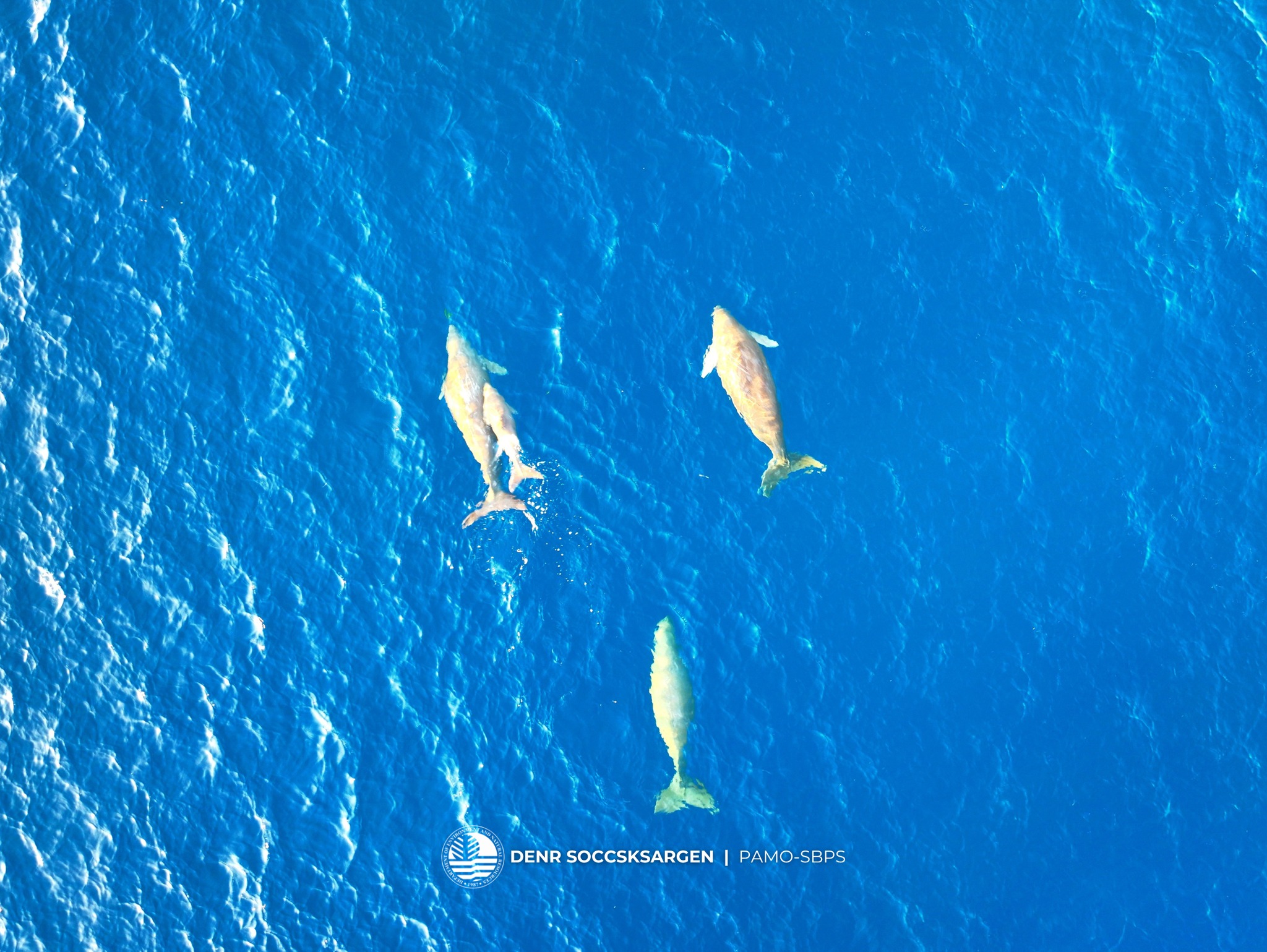A good sign: ‘Dugong’ spotted foraging in Sarangani Bay

FEEDING TIME The May 31 sea cow sighting off the coast of Glan, Sarangani province—PHOTO FROM DENR-SOCKSARGEN PAMO-SBPS
KORONADAL CITY—Sarangani Bay has continued to be a feasting area for various marine animals, indicating that its ecological health has been maintained through the years.
On Friday, four sea cows, commonly known as dugong, were seen foraging off the coast of Glan, Sarangani province, environment officials said.
According to Cirilo Lagnason Jr., the protected area superintendent of Sarangani Bay Protected Seascape (SBPS), the dugong herd, composed of three adults and a calf, was documented using a drone camera in the coast of Barangay Cablalan in Glan.
Incidentally, the Department of Environment and Natural Resources (DENR) in the region held culminating activities of the observance of this year’s month of the ocean.
Vulnerable
“Our ocean wants to remind us once again of its importance as a habitat for our marine wildlife, including our country’s only vegetarian mammal, the dugong,” Lagnason said.
Article continues after this advertisementSea cows are listed as vulnerable by the International Union for Conservation of Nature, primarily due to habitat loss, hunting and accidental entanglement in fishing gear.
Article continues after this advertisementEnvironmentalists are worried that the dwindling local dugong population is further made vulnerable by the country’s massive problem of marine trash as the sea mammals might mistake these as food.
“SBPS is considered a dugong-stranding hot spot in the country. Some of the strandings are caused by indirect anthropogenic activities, which include the improper disposal of fishing paraphernalia,” Lagnason explained.
DENR-12 regional executive director Felix Alicer said the recent dugong sighting in Sarangani Bay showed that the SBPS requires continued protection, not only by the DENR but by other sectors that have a stake in its environmental health.
“The DENR alone cannot carry out this function effectively without the support of the citizenry and the local government units. We must all work together to protect and preserve the biodiversity in the SBPS,” said Alicer, who also chairs the SBPS management board.
Ramos proclamation
The SBPS was established in 1996 through Proclamation No. 756 issued by then President Fidel Ramos. It comprises the entire Sarangani Bay and some of the municipal waters of Maitum, Kiamba and Maasim towns.
Sarangani provincial environment and natural resources officer Shalimar Disomangcop urged local communities around the bay to keep observing the “simple yet impactful practices” of the 5Rs, meaning, refuse, reduce, reuse, recycle, and rot, in relation to the management of wastes.
This way, the communities are able to contribute to protecting the ocean and its inhabitants, like the dugong, Disomangcop said.